Words of Wisdom: Green Thing
“The elders are the history and mirror of the living past. Study them to brighten your life and future.” ― Ehsan Sehgal
In Celebration of Earth Day …
Please enjoy this reprint of wise ponderings from those we hold dear and near.
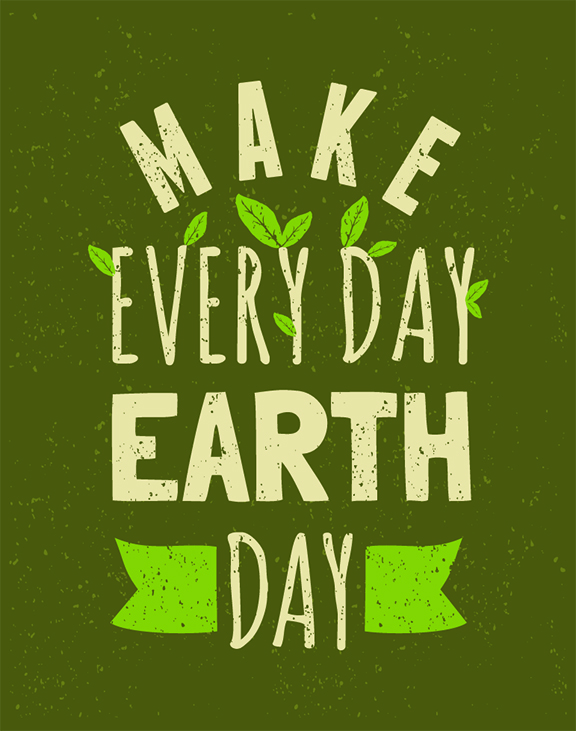
Checking out at the store, and older lady was told (by a younger cashier) that she should bring her own grocery bags because plastic bags are not good for the environment.
The woman apologized and explained, “We didn’t have the’green thing’ back in my earlier days.”
But how did the older generation live without the “green thing?”
Back then, without the “green thing,” milk bottles, soda bottles and beer bottles were returned to the store. The store sent them back to the plant to be washed and sterilized and refilled, so it could use the same bottles over and over. So they really were recycled.
Grocery stores bagged groceries in brown paper bags that were reused for numerous things. Most memorable besides household garbage bags was the use of brown paper bags as book covers for school books. This was to ensure that public property (the books provided for our use by the school) was not defaced by our scribblings. Plus, kids were able to personalize our books on the brown paper bags.
Without the “green thing,” people walked up stairs because there were not escalators or elevators in every store and office building. They walked to the grocery store and didn’t climb into a 300-horsepower machine every time they had to go two blocks.
Back then, baby’s diapers were washed because the throw away kind didn’t exist. Clothes were dried on a line, not in an energy-gobbling machine burning up 220 volts. Wind and solar power really DID dry clothes back in the early days.
Kids got hand-me-down clothes from their brothers or sisters, not always brand-new clothing.
Back then, families only had one TV, or radio, in the house — not a TV in every room. And the TV had a small screen the size of a handkerchief (remember them?), not a screen the size of the state of Montana.
In the kitchen, they blended and stirred by hand because there were no electric machines.
When an item was fragile and had to be sent in the mail, people used wadded up old newspapers to cushion it, not Styrofoam or plastic bubble wrap.
Back then, folks didn’t fire up an engine and burn gasoline just to cut the lawn. They used a push mower that ran on human power.
People exercised by working so they didn’t need to go to a health club to run on treadmills that operate on electricity.
They drank from a fountain when thirsty instead of using a cup or a plastic bottle every time they had a drink of water. They refilled writing pens with ink instead of buying a new pen, and replaced the razor blade in a razor instead of throwing away the whole razor just because the blade got dull.
Back then, people took the streetcar or a bus and kids rode their bikes to school or walked instead of turning their moms into a 24-hour taxi service in the family’s $45,000 SUV or van, which cost what a whole house did before the “green thing.”
So no, no “green thing” back then … but why not adopt some of these old habits and live a green life!

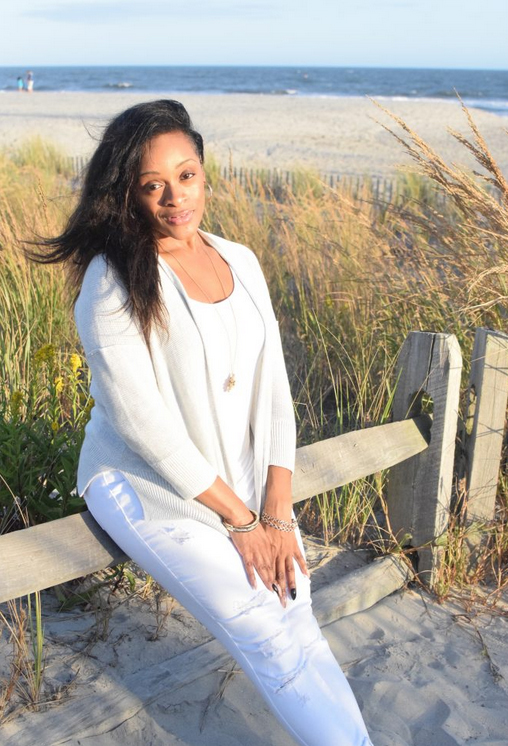 By “Dr. Rox” — Roxane E. Hearn, PhD
By “Dr. Rox” — Roxane E. Hearn, PhD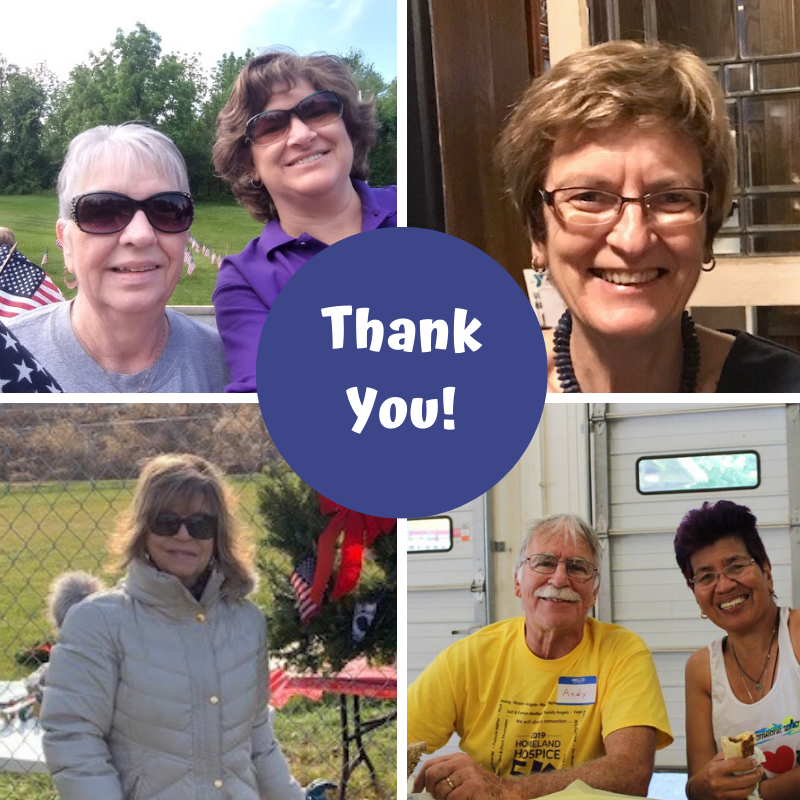 National Volunteer Week provides the opportunity to recognize the millions of Americans who provide volunteer service in communities across the country. At Homeland Hospice, 42 trained volunteers are giving selflessly to help people live as fully as possible, even when facing a serious or life-threatening illness. Even now, when our volunteers can’t visit patients and their families in the home, or provide administrative assistance in the Homeland office, they are helping our staff meet needs by making phone calls, sending cards, making protective face masks, and preparing bereavement mailings from their homes.
National Volunteer Week provides the opportunity to recognize the millions of Americans who provide volunteer service in communities across the country. At Homeland Hospice, 42 trained volunteers are giving selflessly to help people live as fully as possible, even when facing a serious or life-threatening illness. Even now, when our volunteers can’t visit patients and their families in the home, or provide administrative assistance in the Homeland office, they are helping our staff meet needs by making phone calls, sending cards, making protective face masks, and preparing bereavement mailings from their homes.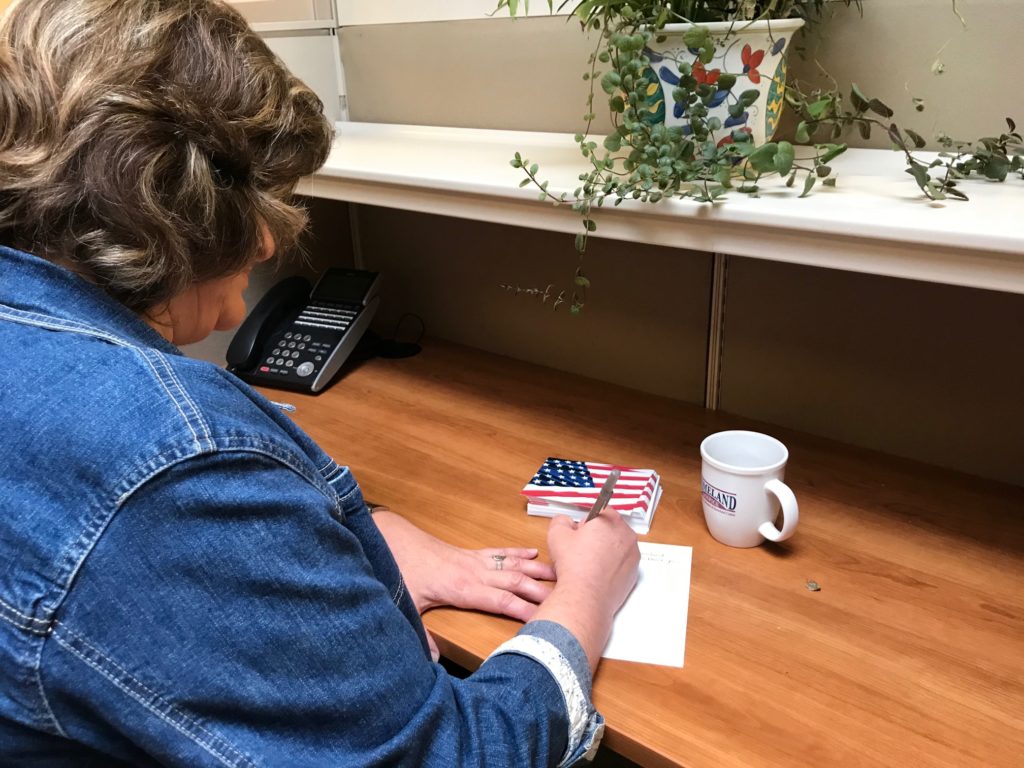 As hospice staff and volunteers, the most we can do is provide an opportunity for our patients to have the best deaths possible for them. Laurie Murry, Volunteer Coordinator said, “while everyone else is running away from end-of-life, our staff and volunteers are marching forward saying, ‘We know what you’re going through. We want to help.’”
As hospice staff and volunteers, the most we can do is provide an opportunity for our patients to have the best deaths possible for them. Laurie Murry, Volunteer Coordinator said, “while everyone else is running away from end-of-life, our staff and volunteers are marching forward saying, ‘We know what you’re going through. We want to help.’”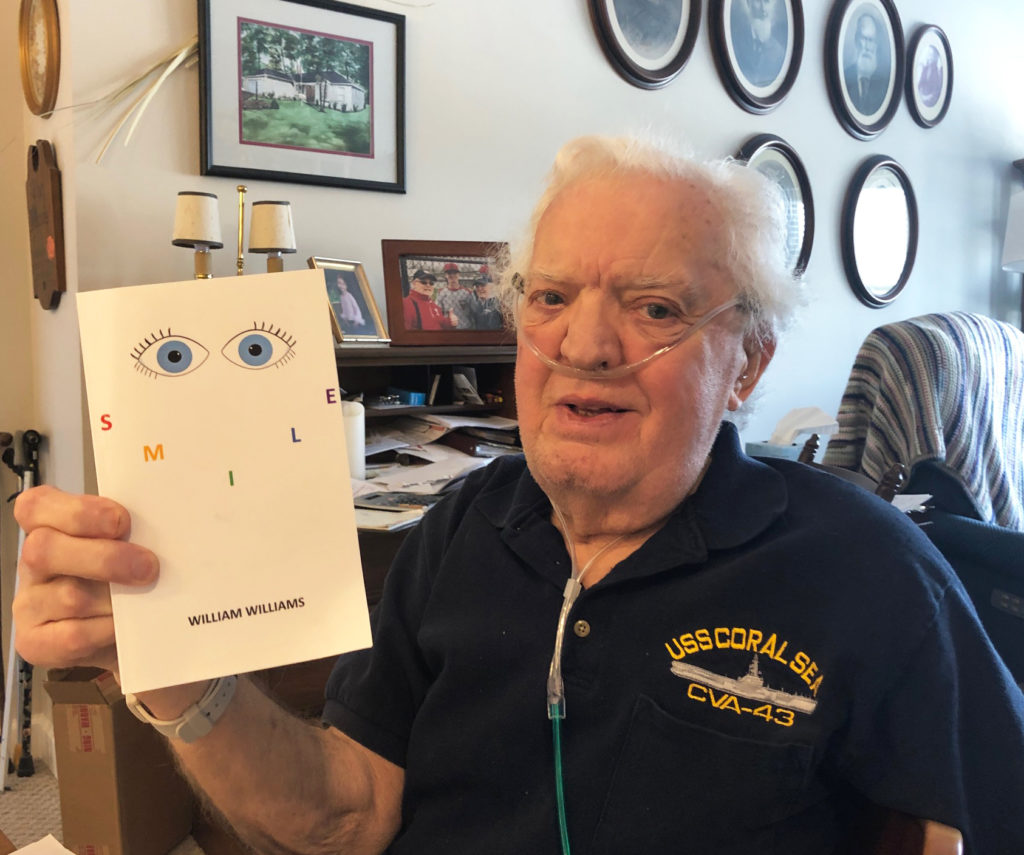 Bill Williams is a master storyteller with a love of news, history and family. For Bill, knowing the joys and challenges of his ancestors has fueled his career ambitions and love of a good story.
Bill Williams is a master storyteller with a love of news, history and family. For Bill, knowing the joys and challenges of his ancestors has fueled his career ambitions and love of a good story.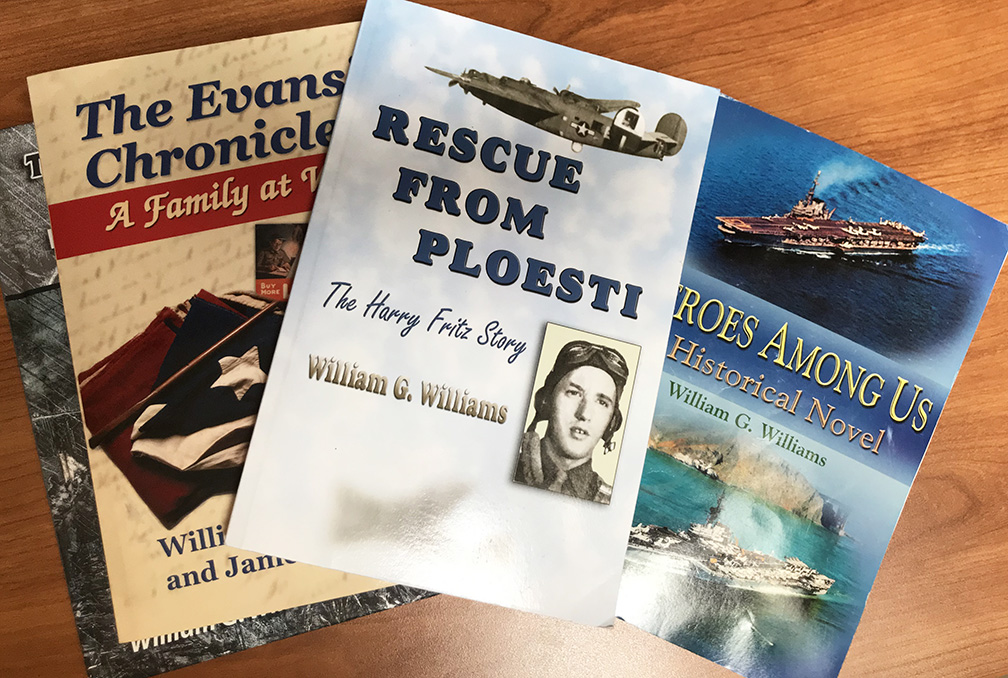 Following his retirement, Bill focused his time and talents on writing historical novels, a play, one nonfiction book and an ongoing column for a Welsh newspaper.
Following his retirement, Bill focused his time and talents on writing historical novels, a play, one nonfiction book and an ongoing column for a Welsh newspaper.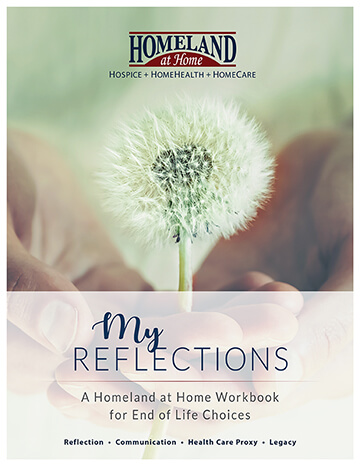 National Health Care Decisions Day is April 16. As COVID-19 challenges loved ones from gathering and making end-of-life decisions, the need for us to inspire and educate on the importance of advanced care planning remains a priority. Major decisions for families and patients need to be made but the current restrictions in our healthcare systems make that more difficult. The layers of communication required between doctors, specialists and families to be able to make important decisions have changed dramatically. This “new normal” will affect patients and their family’s lives forever.
National Health Care Decisions Day is April 16. As COVID-19 challenges loved ones from gathering and making end-of-life decisions, the need for us to inspire and educate on the importance of advanced care planning remains a priority. Major decisions for families and patients need to be made but the current restrictions in our healthcare systems make that more difficult. The layers of communication required between doctors, specialists and families to be able to make important decisions have changed dramatically. This “new normal” will affect patients and their family’s lives forever. By Homeland Hospice Chaplain Dann Caldwell, M. Div., Th. M.
By Homeland Hospice Chaplain Dann Caldwell, M. Div., Th. M.
